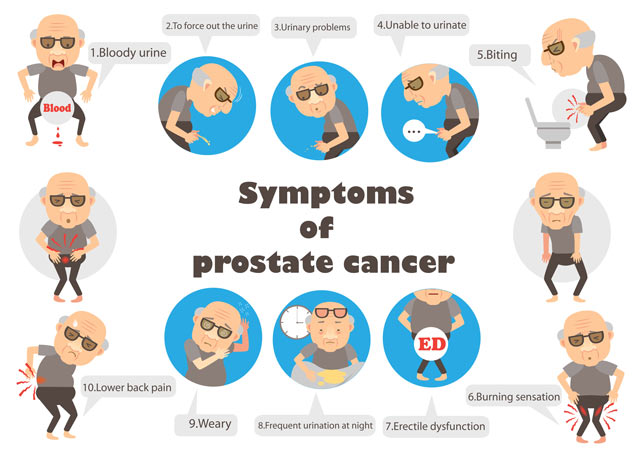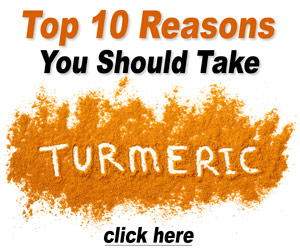Help Prevent or Slow Prostate Cancer with Vitamin K

Prostate cancer is the most common type of malignancy in men. With early detection with testing for prostate-specific antigen (PSA) levels, survival rates have dramatically improved. However, if prostate cancer spreads beyond the local area conventional therapies generally do not improve overall survival. Hormonal drugs also have significant negative side effects. In addition, there are very few treatment options for androgen (hormone) independent prostate cancer. Can vitamin K help?(44)
Vitamin K May Help Prostate Health
Some researchers speculate that vitamin K may help reduce prostate cancer risk by promoting vein health. How? Varicose veins can cause backwards blood flow from the testes to the prostate gland. This can greatly increase the amount of testosterone near the prostate gland, causing it to enlarge.(83)
An enlarged prostate, or benign prostate hyperplasia (BPH), increases the risk of prostate cancer. Vitamin K deficiency is linked to the formation of varicose veins. These researchers suggest that vitamin K can help prevent them near the testes.(83)
Vitamin K3 and Vitamin C Combination Boosts Chemotherapy
The search for less toxic remedies to prevent and treat prostate cancer has led researchers to consider the possible benefits of vitamin C and vitamin K3. Both vitamins have demonstrated antitumor effects on cancer cell lines in the lab. However, individually these vitamins have therapeutic limitations.(44)
In one study vitamin K3 enhanced the effects of chemotherapy and radiation in cancer patients. But at high doses, 30% of the patients experienced toxic side effects from vitamin K3. Vitamin C increased the efficacy of radiation on cancer cells in patients, but it was difficult to obtain consistent useful dosage levels.(44)
Better Together
A more promising approach has emerged with a synergistic formula made of vitamin C and vitamin K3 called Apatone®. When tested on human cancer cell lines Apatone® reduced growth and killed prostate cancer cells. More importantly, it did so at significantly lower concentrations than the individual vitamins. Animal studies confirmed these results and increased survival times of mice with prostate cancer.(44, 74)
Clinical Evidence of Benefit
Based on these preliminary studies, clinical trials were carried out with prostate cancer patients. The results were promising:
In a randomized, placebo-controlled clinical trial the vitamin C and K3 combination improved conventional therapy benefits for patients with prostate cancer. The study involved patients with advanced (stage M1) metastatic prostate cancer who were resistant to hormone therapy. Patients were divided into three treatment groups and one placebo group and given two 7-day treatment regimens separated by two untreated weeks. The treatment groups were given oral doses of one of the following:(44)
- Apatone® (5-g/m2/day of vitamin C and 50 mg/m2/day of vitamin K3)
- Vitamin C alone
- Vitamin K3 alone
Results showed that the Apatone® treated group had increased levels of homocysteine in their blood, which is a sign of tumor cell death. During the initial two weeks the PSA numbers rose but then fell to lower levels than the control group for all treatment groups. However, PSA levels were significantly lower for the participants treated with Apatone®.(44)
Another 12-week clinical trial involved 17 prostate cancer patients who continued to have rising PSA levels despite standard treatment therapies. They were given much higher doses of Apatone® (5,000 mg. of vitamin C and 50 mg. of vitamin K3) than in the previously mentioned study. However, the higher doses were divided throughout the day (unlike in the earlier study, where patients were medicated once a day).(44)
These divided doses served to keep blood levels of vitamin C steady. During the initial 12 weeks, 13 of the participants experienced significant positive response to treatment. Responses were measured by increases in the amount of time it took for PSA levels to double. Longer doubling times is considered a sign of slowing the progression of prostate cancer.(44)
There were 3 patients who failed to respond during the 12-week study. But once dosages were adjusted (to double) in 2 of the 3 to compensate for much larger body weight, both responded to treatment. Fifteen of the 17 patients continued the therapy after the initial 12-week trial period and maintained stable PSA levels. They reported no significant negative side effects (including no coagulation problems) and actually described an overall feeling of better and more energetic.(44)
Eleven of the 15 continued treatments for more than a year and only one of the 11 died after 14 months. Conversely, the four that did not continue Apatone® experienced acute increases in PSA levels following termination of therapy.(44)
These studies suggest that the combination of vitamins C and K3 may be used to safely stabilize disease progression in prostate cancer patients who are nonresponsive to some standard therapies. The authors note that using Apatone® as an adjuvant to docetaxel chemotherapy may also offer a beneficial salvage therapy option in otherwise untreatable cases.(44)
Does Vitamin K Promote Prostate Cancer?
Anticoagulant drugs, such as warfarin and heparin, lower levels of vitamin K in the body. An association between warfarin use and a lower occurrence of prostate cancer has been noted. So does this mean that vitamin K may indirectly promote cancer cells?(84)
Not likely. Results of a long-term population study showed that vitamin K intake was unrelated to the rate of prostate cancer. In other words, in this study vitamin K didn't increase or reduce the rate of prostate cancer. Vitamin K2, however, was actually linked to lower rates of prostate cancer — especially advanced cases.(85)




